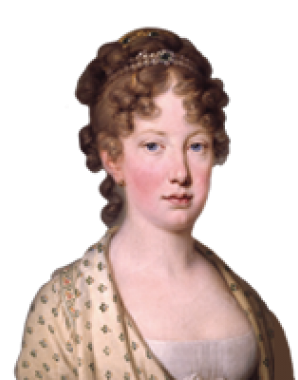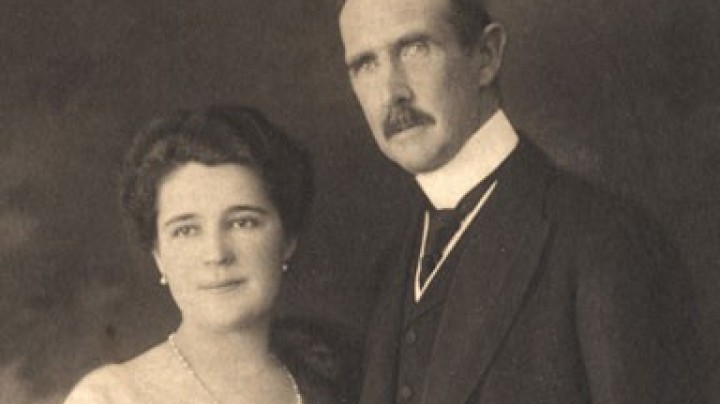A Portuguese fairy-tale prince?
Leopoldine had dreamed of a marrying a fairy-tale prince but found herself instead with a husband with whom she could barely communicate.
The original document was written in French. The original is held in the private archives of the Brazilian imperial family in Petrópolis.Leopoldina’s ‘Vademecum’ – a set of self-imposed rules of conduct:
I will try always to have a regular hour at which I get up and go to bed in order to avoid an excess of sensuality during my period of rest.
On religious holidays and Sundays I will impose a number of small mortifications upon myself, such as denying myself one course during a meal, or maintaining silence for a certain period of time, or to deprive myself of a pleasure, doing all of this, however, in such a way that others will not notice it.
On the last day of the year I will conduct a general examination of my behaviour.
General behaviour:
I will avoid dressing in a manner that draws attention to myself.
I will indulge in no unnecessary expenses that interfere with the household budget, but I shall give as many alms as possible and shall avoid trivialities so that I may help the poor.
Any excess of income I shall use primarily to support institutions dedicated to educating the young or helping the sick.
May my heart ever remain closed to corrupting worldly thoughts; let me avoid harmful indulgence, unseemly finery, ambiguity or scandalous dress.
Striving to be virtuous:
May my indispensable virtue ever be modesty, to preserve the purity of my heart.
I will never cease to struggle against my own failings starting with the most serious:
I will always regard lying as the work of the devil and a plague on society.
May I never have a haughty or arrogant countenance, but be serious and modest, honest and clement, gracious and polite to people both great and small. In conversation I shall choose my words carefully and will never speak simply to bring advantage to myself.
Conduct after marriage:
After 13 May, my wedding day, I charge myself thus:
1. To tame my vehement manner, and to be good to my people so that I may accustom myself to gentleness and compliance,
2. I will avoid any unchaste thoughts, for from that day forth I belong to my husband,
3. I will work diligently to improve my education,
4. I will make every effort always to speak the truth.
On 13 May 1817 Leopoldine was married to Dom Pedro per procuram (by proxy) in Vienna. At the ceremony the bridegroom was represented by Leopoldina’s uncle, Archduke Karl.
Embarkation took place in Livorno on 13 August 1817 among much celebration, and after an adventure-filled voyage lasting 81 days, Leopoldine arrived in Rio de Janeiro on 5 November and finally met her husband.
From a distance Pedro initially appeared to Leopoldine to be a perfect, well-educated gentleman, but the reality was very different. Dom Pedro was a year younger than Leopoldine and sadly rarely measured up to the descriptions given by the matchmakers. His temperament was impulsive and choleric, and his education but modest. Even spoken communication between the young married couple proved difficult, as Pedro spoke very little French and his Portuguese could only be described as vulgar.
In keeping with Portuguese tradition, at the age of eighteen Pedro Bragança not only had a string of amorous adventures behind him and was principally interested in horse racing and love affairs, but in 1817 (the year of his marriage to Leopoldine) he was living as if in wedlock with French dancer Naeomi Thierry, who was finally removed from the court by his father a month after Leopoldina's arrival in Rio de Janeiro.
The young married couple took up residence in six relatively small rooms in the Quinta Boa Vista in São Cristóvão. The inner courtyard and path to the stables were unpaved and the tropical rainfall quickly turned everything to mud. There were insects everywhere, including in their clothing, for the uniforms and court regalia made of velvet and plush rotted and turned mouldy in the heat and humidity.


















